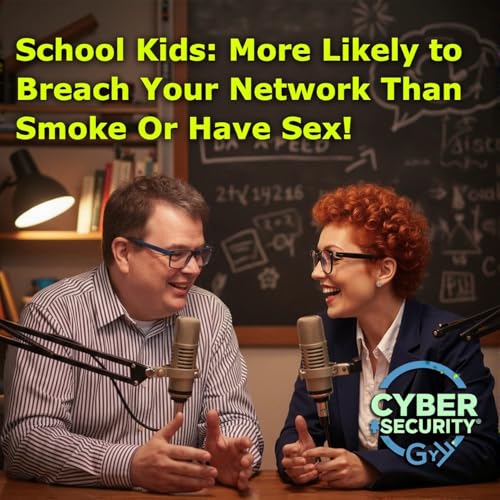
The Small Business Cyber Security Guy | UK Cybersecurity for SMB & Startups
Échec de l'ajout au panier.
Veuillez réessayer plus tard
Échec de l'ajout à la liste d'envies.
Veuillez réessayer plus tard
Échec de la suppression de la liste d’envies.
Veuillez réessayer plus tard
Échec du suivi du balado
Ne plus suivre le balado a échoué
-
Narrateur(s):
-
Auteur(s):
-
The Small Business Cyber Security Guy
À propos de cet audio
The UK's leading small business cybersecurity podcast, helping SMEs protect against cyber threats without breaking the bank.
Join cybersecurity veterans Noel Bradford (CIO at Boutique Security First MSP) and Mauven MacLeod (ex-UK Government Cyber Analyst) as they translate enterprise-level security expertise into practical, affordable solutions for UK small businesses.
🎯 WHAT YOU'LL LEARN:
- Cyber Essentials certification guidance
- Protecting against ransomware & phishing attacks
- GDPR compliance for small businesses
- Supply chain & third-party security risks
- Cloud security & remote work protection
- Budget-friendly cybersecurity tools & strategies
🏆 PERFECT FOR:
- UK small business owners (5-50 employees)
- Startup founders & entrepreneurs
- SME managers responsible for IT security
- Professional services firms
- Anyone wanting practical cyber protection advice
Every episode delivers actionable cybersecurity advice that you can implement immediately, featuring real UK case studies
The Small Business Cyber Security Guy Productions
Épisodes
-
 10 min
10 minÉchec de l'ajout au panier.
Veuillez réessayer plus tardÉchec de l'ajout à la liste d'envies.
Veuillez réessayer plus tardÉchec de la suppression de la liste d’envies.
Veuillez réessayer plus tardÉchec du suivi du balado
Ne plus suivre le balado a échoué
-
 18 min
18 minÉchec de l'ajout au panier.
Veuillez réessayer plus tardÉchec de l'ajout à la liste d'envies.
Veuillez réessayer plus tardÉchec de la suppression de la liste d’envies.
Veuillez réessayer plus tardÉchec du suivi du balado
Ne plus suivre le balado a échoué
-
 41 min
41 minÉchec de l'ajout au panier.
Veuillez réessayer plus tardÉchec de l'ajout à la liste d'envies.
Veuillez réessayer plus tardÉchec de la suppression de la liste d’envies.
Veuillez réessayer plus tardÉchec du suivi du balado
Ne plus suivre le balado a échoué
Pas encore de commentaire



